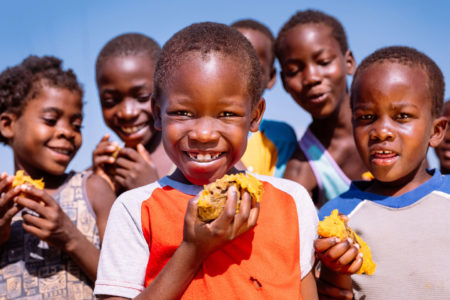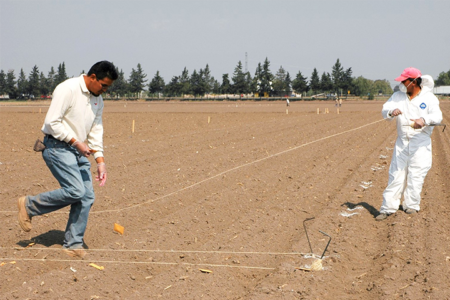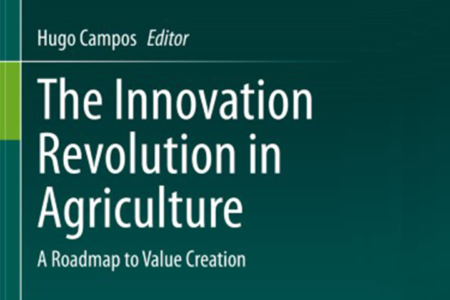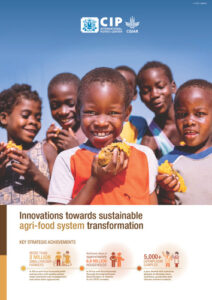Share to:
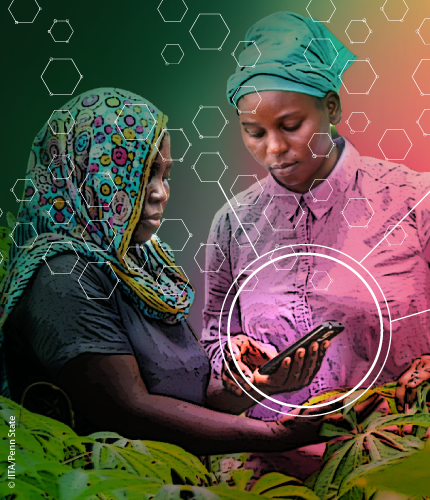
Agricultural innovation driving achievement of the Sustainable Development Goals
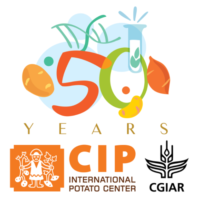 The need to innovate in agriculture is more urgent than ever. Rising populations will require 60% more food by 2050. Increasing urbanization in Africa and Asia and the impacts of climate change demand we produce this food with fewer inputs. While much of the world struggles with the threat of food insecurity, the cost of nutritious foods in the developing world far exceeds that paid in industrialized nations.
The need to innovate in agriculture is more urgent than ever. Rising populations will require 60% more food by 2050. Increasing urbanization in Africa and Asia and the impacts of climate change demand we produce this food with fewer inputs. While much of the world struggles with the threat of food insecurity, the cost of nutritious foods in the developing world far exceeds that paid in industrialized nations.
The International Potato Center, celebrating its 50th anniversary this year, is delighted to sponsor this special event to discuss the crucial role of agricultural innovation to overcome these challenges and achieve the Sustainable Development Goals by 2030. In particular, this event will focus on how collaboration with international partners and within the CGIAR can contribute to the momentum leading up to the One CGIAR’s arrival at the 2021 Food Systems Summit, a key event for initiating global initiatives for food systems transformation.
Marco Ferroni is the Chair of the CGIAR System Board and currently advises public, private, and social sector partners on agriculture, food systems and sustainable productivity growth. He also serves on the board of the Global Institute for Food Security at the University of Saskatchewan and recently completed terms as an Adjunct Professor at McGill University.
MARCO FERRONI
Chair, CGIAR System Board
Hugo Campos serves as Research Director at the International Potato Center (CIP) and principal investigator for SweetGAINS, a Bill & Melinda Gates Foundation investment for modernizing sweetpotato breeding operations in Africa. He has +25 years of international experience focused primarily on molecular breeding to deliver market-driven, superior varieties.
HUGO CAMPOS
Director of Research
International Potato Center
Hale Ann Tufan is associate director for the Feed the Future Innovation Lab for Crop Improvement, co-director of the Gender Responsive Researchers Equipped for Agricultural Transformation (GREAT) project. She is a research professor in the Department of Global Development and an adjunct faculty member of Plant Breeding and Genetics section at Cornell University.
HALE ANN TUFAN
Associate Director
Feed the Future Innovation Lab for Crop Improvement
Bram Govaerts is Chief Operating Officer and Deputy Director General for Research at the International Maize and Wheat Improvement Center. He also services as director of CIMMYT’s Integrated Development Program, a regional representative for the Americas, and country representative for Mexico.
BRAM GOVAERTS
Deputy Director General for Research
International Maize and Wheat Improvement Center (CIMMYT)
Graham Thiele is Director of the CGIAR Research Program on Roots, Tubers and Bananas (RTB). He has worked for this CIP in evolving roles for over 25 years and helped develop, implement, and assess several novel participatory methodologies designed to link farmers with markets, inform research agendas, and promote innovation in policies, products, and technology uptake.
GRAHAM THIELE
Director
CGIAR Research Program on Roots, Tubers and Bananas (CGIAR RTB)
Lauren Landis is Representative and Country Director for Kenya at the World Food Programme. She has spent most of her career working in the field of relief and development including posts with OCHA, Save the Children, the US State Department. In 2011, she became the Director of the World Food Programme Geneva Office.
LAUREN LANDIS
Country Director for Kenya
World Food Programme (WFP)
Vivienne Anthony is the Senior Scientific Advisor for the Syngenta Foundation’s Demand-Led Breeding program. She was Head of Crop Enhancement Research at Zeneca, and Global Head of Crop Protection Product Development & Regulatory Affairs for Seeds and Biotechnology at Syngenta. She spent her early research years in fungicide invention and is a named inventor on over 25 patents.
VIVIENNE ANTHONY
Director
Syngenta Foundation’s Demand-Led Breeding Program
Mary Ann Sayoc is the Public Affairs Lead for the East-West Seed Group. She was a member of the Executive Board of the Global Crop Diversity Trust from 2013-2019 and is currently a member of the Board of Directors of the International Seed Federation.
MARY ANN SAYOC
Public Affairs Lead
East-West Seed
Jonas Nwankwo is Chief Agricultural Economist for the African Development Bank and coordinator of the multinational “Technologies for African Agricultural Transformation” program currently operating in ten African countries. Through his career, Nwankwo has numerous collaborations with CGIAR-led projects to improve resilience and agricultural productivity in Africa.
JONAS CHIANU
Chief Agricultural Economist
African Development Bank
Barbara Wells is the Director General of the International Potato Center in Lima, Peru. She has over 30 years of experience in developing commercial, technical and regulatory strategies for the launch of conventional seed and seedling products and products of renewable energy, crop protection and plant technology in agricultural and forestry markets throughout the world.
BARBARA WELLS
Director General, International Potato Center
Global Director, Genetic Innovation, CGIAR
Introduction – 15:30 pm
Embedding innovation into One CGIAR
Marco Ferroni, CGIAR System Board
Presentation on The innovation revolution in agriculture, a roadmap to value creation
Hugo Campos, CIP
The gender and equity pitfalls in designing high impact innovation
Hale Ann Tufan, Cornell University
Innovation cases
Mas Agro: government, farmers, supply chain businesses and agrobiodiversity
Bram Govaerts, CIMMYT
Success at the last mile, scaling up and impact
Graham Thiele, Director, CGIAR RTB
Researchers, farmers and innovation in the humanitarian sector
Lauren Landis, WFP
Technology and client-demand
Vivienne Anthony, Syngenta Foundation
Extension and innovation
Mary Ann Sayoc, East West Seed
Investor perspective
Jonas Chianu, African Development Bank
Q&A (moderated by Marco Ferroni, CGIAR System Board)
Closing remarks
Barbara Wells, CIP


